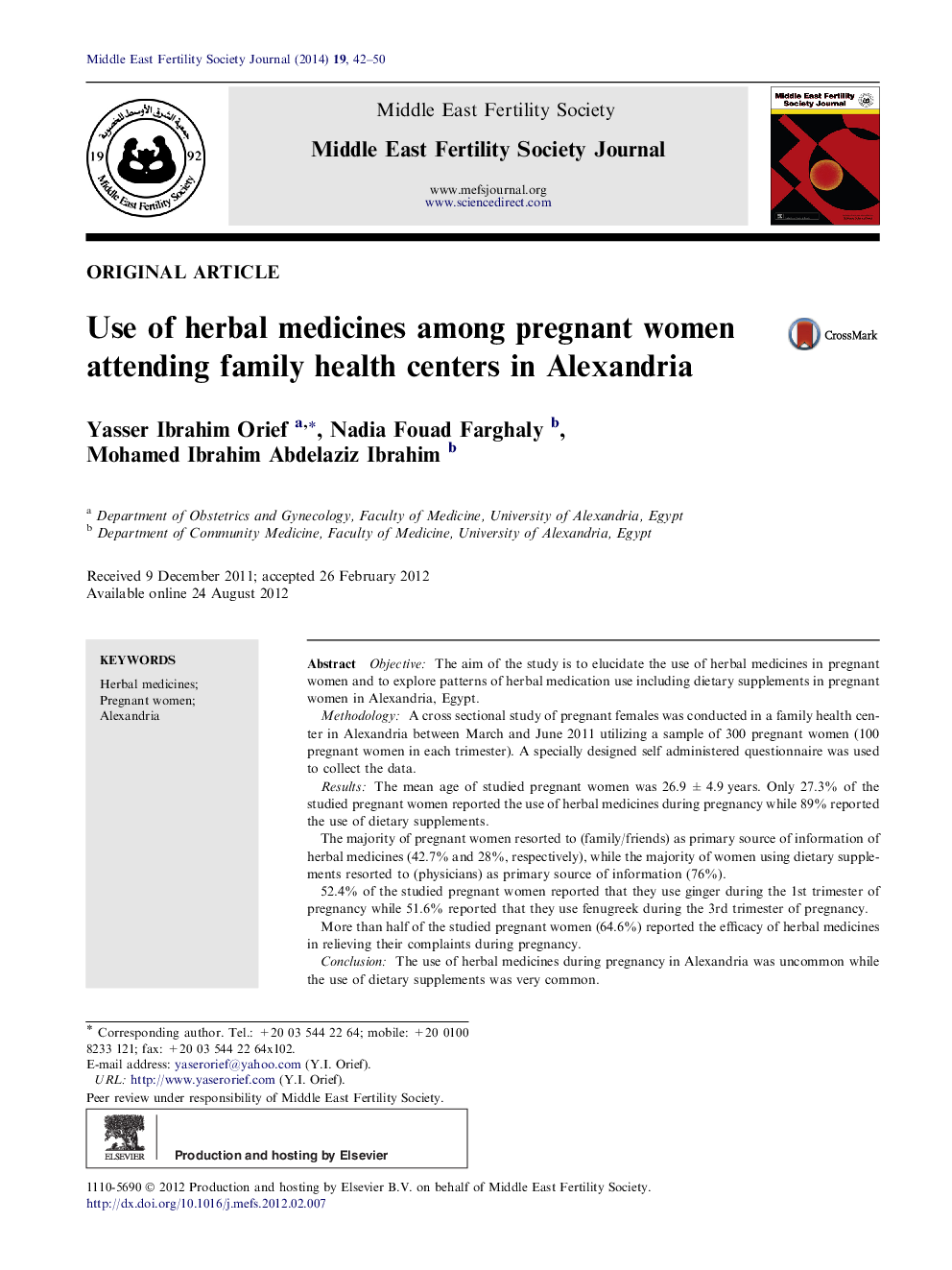| Article ID | Journal | Published Year | Pages | File Type |
|---|---|---|---|---|
| 3966159 | Middle East Fertility Society Journal | 2014 | 9 Pages |
ObjectiveThe aim of the study is to elucidate the use of herbal medicines in pregnant women and to explore patterns of herbal medication use including dietary supplements in pregnant women in Alexandria, Egypt.MethodologyA cross sectional study of pregnant females was conducted in a family health center in Alexandria between March and June 2011 utilizing a sample of 300 pregnant women (100 pregnant women in each trimester). A specially designed self administered questionnaire was used to collect the data.ResultsThe mean age of studied pregnant women was 26.9 ± 4.9 years. Only 27.3% of the studied pregnant women reported the use of herbal medicines during pregnancy while 89% reported the use of dietary supplements.The majority of pregnant women resorted to (family/friends) as primary source of information of herbal medicines (42.7% and 28%, respectively), while the majority of women using dietary supplements resorted to (physicians) as primary source of information (76%).52.4% of the studied pregnant women reported that they use ginger during the 1st trimester of pregnancy while 51.6% reported that they use fenugreek during the 3rd trimester of pregnancy.More than half of the studied pregnant women (64.6%) reported the efficacy of herbal medicines in relieving their complaints during pregnancy.ConclusionThe use of herbal medicines during pregnancy in Alexandria was uncommon while the use of dietary supplements was very common.About three quarters of studied sample reported that the physician was the person to recommend dietary supplement usage while the physician was rarely cited as the person recommending herbal usage.The most common herbs used by pregnant women were aniseed, fenugreek, ginger, while the least used was peppermint.Ginger was found to be used by a significantly higher percentage of pregnant women in the first trimester; on the other hand, fenugreek was used by a significantly higher percentage of pregnant women in the third trimester.RecommendationsResults of the following study suggest the following recommendations:General recommendationsGeneral health education for pregnant women about benefits and harms of herbal use during pregnancy in ante-natal care especially for herbs commonly used in Egypt.Specific recommendationsACare providers:Training of family physicians in the family health centers on the use of herbal medicines in pregnancy and possible effects on the fetus.BPregnant women:Health education program directed toward pregnant women to increase their awareness about the effects of herbal medicines.
